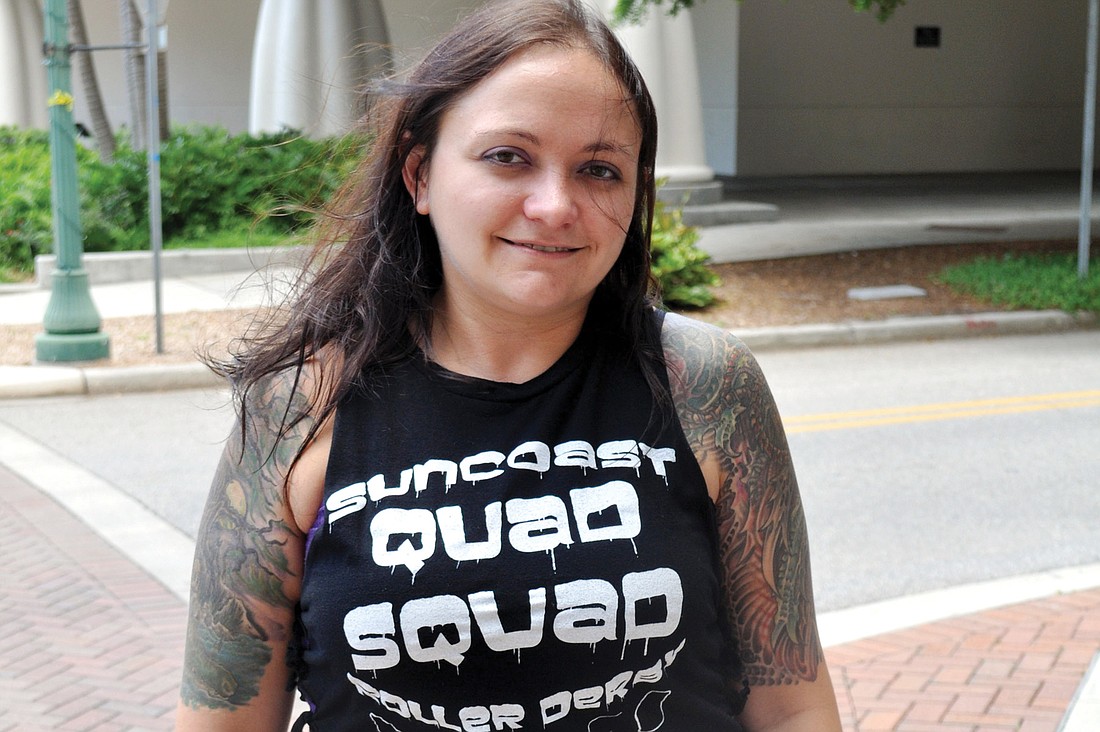- December 27, 2024
-
-
Loading

Loading

Looking at Kate O’Shea, a coach for the Suncoast Quad Squad roller derby team, one would never guess that, at one point, she had to be coaxed into playing the sport. With her tattoos, jet-black hair and no-nonsense appearance, the former motorcycle mechanic’s look screams “tough,” which is how she was initially recruited as a founding member of the Bradentucky Bombers. But O’Shea says she wasn’t so confident at first.
“The girls came up to me at a bar,” she says. “They said, ‘Hey, we need some tough-looking girls on our roller derby team. You have tattoos. Want to play?’”
O’Shea turned down their offer that night but admitted to her boyfriend at the time that she’d always had a secret desire to play.
“I told them, ‘Hell, no!’” says O’Shea with a laugh. “I had no idea how to skate, but I called them back the next day and said, ‘Can I still be on your team?’”
She and a small group of other women quickly went to work skating three miles per day to prepare for the team’s first bout, during which O’Shea was the team captain.
“I was a mess,” says O’Shea. “I was trying to hide how nervous I was, but I was skating like Bambi on ice. By the second bout, though, you’re not nearly as nervous. You forget about the crowd.”
After moving to Sarasota, O’Shea played for the Sarasota Roller Girls, (now the Quad Squad) before stepping out of the ring to coach in 2010. Between her job as a death-penalty mitigation specialist, attending forensic psychology classes and booking underground roots-and-punk bands for her production company, Root Cellar Entertainment, O’Shea decided she was too busy to continue playing. She’d also suffered several injuries, which were substantial enough to convince her to change her focus to coaching.
O’Shea says she enjoys using her experience as a player to guide the team, and she tries to strike a balance between tough coaching and understanding the needs of her players.
“I don’t coddle anyone,” she says. “My first coach was really hard on me, which made me better, but some of the players need certain things. I try to balance that.”
O’Shea says the sport has come a long way in recent years. It no longer features the WWF-style theatrics found in the previously televised version of the sport. It’s now a full-contact, more athletic sport than it used to be, and O’Shea is more enthusiastic about it than ever.
“I miss playing, but I love coaching,” she says. “It’s funny, I call it a habit, not a hobby. Once you’re a roller derby girl, you can’t really stop.”